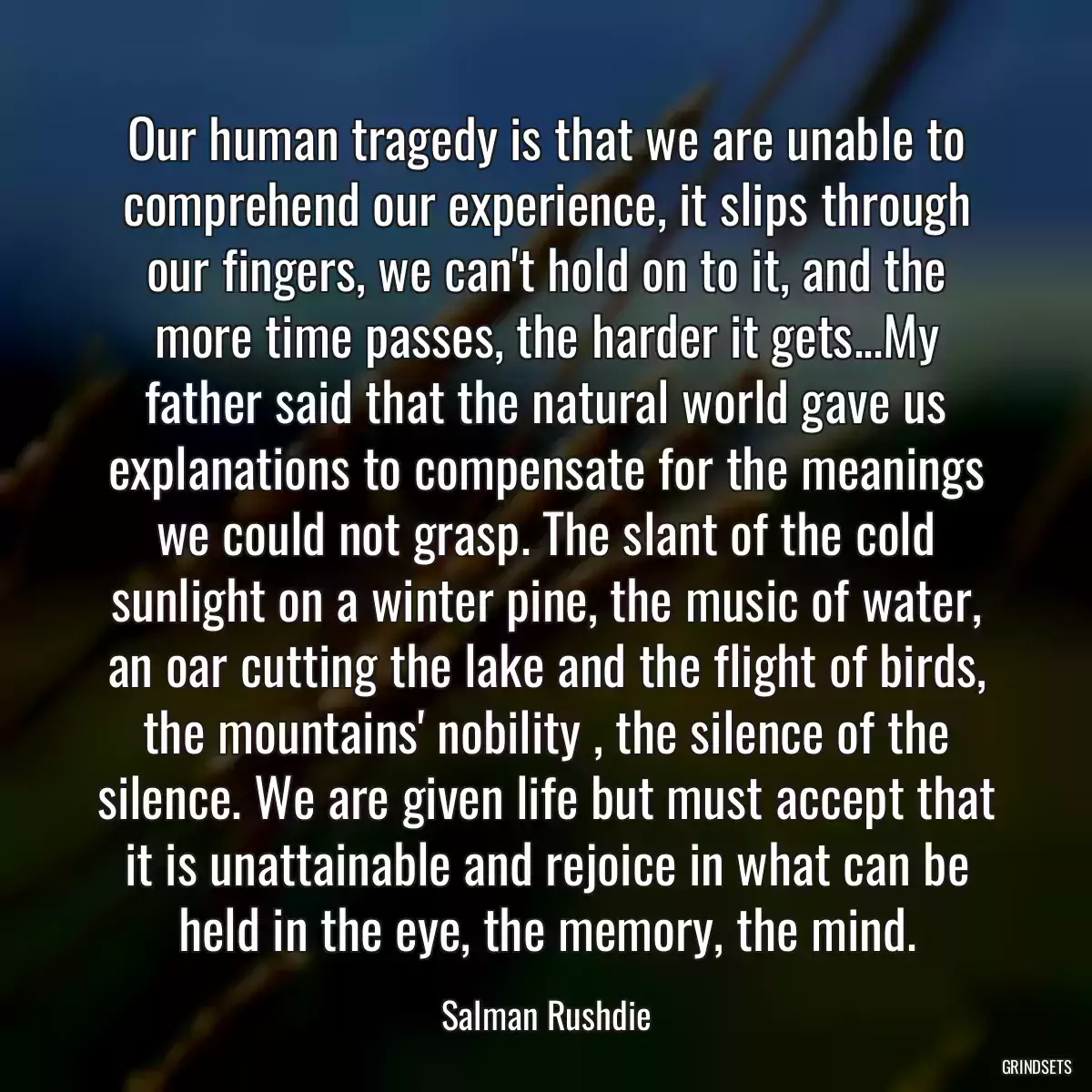
Our human tragedy is that we are unable to comprehend our experience, it slips through our fingers, we can't hold on to it, and the more time passes, the harder it gets...My father said that the natural world gave us explanations to compensate for the meanings we could not grasp. The slant of the cold sunlight on a winter pine, the music of water, an oar cutting the lake and the flight of birds, the mountains' nobility , the silence of the silence. We are given life but must accept that it is unattainable and rejoice in what can be held in the eye, the memory, the mind.